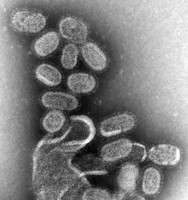Gaming the flu: How we decide to get vaccinated, or not

(Medical Xpress)—As the flu season approaches, public health officials will be campaigning to get people vaccinated, and each of us will have to decide whether to take their advice or not. How will we make those decisions?
The question is practical and urgent: Young people, especially children, are more likely than older people to spread influenza, but less likely to become severely ill or die from the disease, so health officials want as many young people as possible to get vaccinated.
In research published in the journal Psychological Science, Rutgers psychologist Gretchen Chapman, employed game theory – the use of mathematical models to study conflict and cooperation between rational decision-makers – to understand how such decisions are made.
The answer, Chapman found, was straightforward: To get young people vaccinated, make it worth their while. According to her research, young people whose personal rewards are greater if their community's rewards are as great as possible are much more likely to get vaccinated than young people whose personal rewards are not tied to their communities' well-being. Chapman's study is the first to use game theory to examine the social dynamics of influenza vaccination.
"In the case of seasonal flu, the specific people who are supposed to vaccinate are young people, and in our game, you can get the young players to vaccinate altruistically, but only if you set the incentives right," Chapman said.
Chapman and her colleagues set up their game using a laboratory computer task to simulate age-dependent decision-making about influenza vaccination. They divided 287 undergraduate students into groups labeled "young" and "old." Everyone started the game with 4,000 points and gained or lost points, based on the decisions they made about vaccination. At the end, the researchers paid the students based on their number of points. Students in half the groups were paid according to how many points they earned individually; in the other half, students were paid based on how many points the group earned. Getting vaccinated cost points; getting infected cost points.
The two sets of rules reflected two sets of assumptions about human behavior. Students playing by the individualist rules were modeling the Nash Equilibrium, named for the mathematician and game theorist John Forbes Nash who proposed it. Essentially, the Nash Equilibrium assumes that intelligent, rational actors will do all they can to maximize their own benefit. Students compensated by their groups' point totals were modeling the Utilitarian Equilibrium, which assumes that each person sees his or her well-being tied to that of his community and makes decisions accordingly.
"Young" people who had been told they would be paid according to the group's point total were much more likely to get vaccinated than "young" people who were paid according to their individual point totals.
The results were in line with the researchers' expectations, if not their sentiments. "It's a little disappointing, a little discouraging, that people don't do this without the incentive," Chapman said.
Chapman added that game theory models the real world; it isn't the real world itself. "The behavior results are a lot less extreme than the theoretical model," she said. "For example, the utilitarian model suggests that all the young people and none of the older people will get vaccinated, but it doesn't work out that way."













